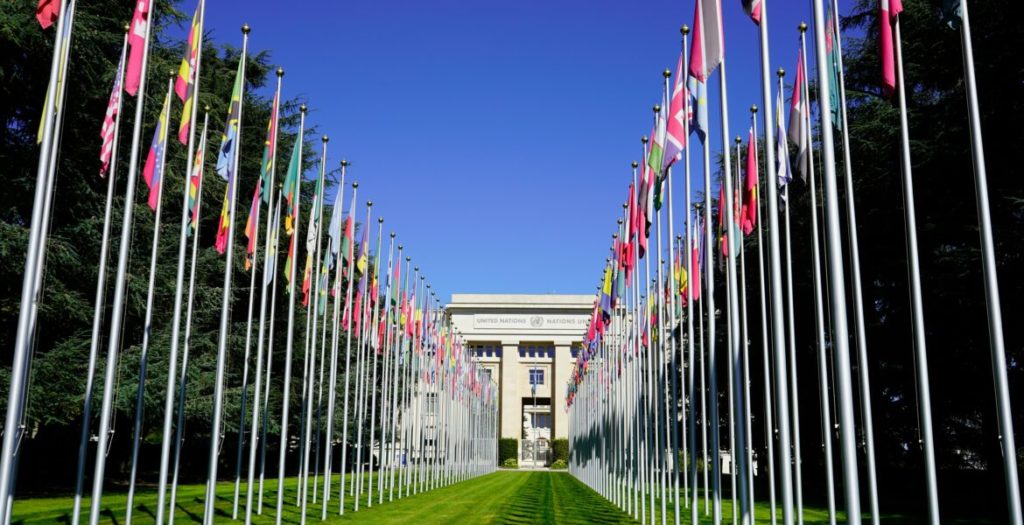The annual UN General Assembly begins on Tuesday 24 September. Most readers will view this news as routine, imagining hundreds of state leaders in similar ties or exotic national costumes delivering traditional, grandiloquent speeches about local or global issues. It seems like just another ritual event in the grand hall of the UN, one that will have little impact on life in Brussels, Paris, or Prague, writes Europolitical.
But not this time. This particular General Assembly could mark the beginning of tectonic shifts that will directly affect the comfort zone that ordinary European citizens so desire. The reason for this is China.
Initially, it may not seem like a serious threat, as discussions will focus on one of the most pressing issues on the global agenda: how to stop Russian aggression in Ukraine. Sincere or hypocritical calls to end the war will be heard, and various actors will again proclaim their willingness to act as peacemakers or mediators.
However, Beijing appears to be serious this time and intends to firmly seize the initiative. Current uncertainties, particularly surrounding the presidential elections in the U.S., create a window of opportunity for China. By appealing to the UN audience and citing alleged support from many Global South nations for the Brazil-China initiative known as the Six-Point Consensus, China is poised to offer a real peace plan with specific measures and timelines. This could initiate a resolution of the Russian-Ukrainian conflict according to a Chinese script.
Of course, this will not be presented as a Chinese plan. Instead, it will be emphasised that the initiative comes from the Global South however vague that term may seem, BRICS, or even the global majority. Initially, Beijing may gather a few dozen ministers or high representatives from Global South countries with Ukraine not invited to form some kind of core group, which could quickly expand to include other nations from Africa, Latin America, and Asia or regional international organisations.
But this will certainly not be a plan for Europe, where the largest conflict since World War II is ongoing, nor will it be a plan for Ukraine, whose President Volodymyr Zelenskyy is persistently promoting his version of a just peace.
The Chinese plan will undoubtedly contain many beautiful words, including relevant and irrelevant references to the UN Charter. By manipulating language, the principle of respecting sovereignty sensitive for any victim of foreign invasion can be made vague and non-specific, while shifting the focus to considering the security interests of every country a favourite formulation of autocratic regimes dreaming of a world divided into spheres of influence. Beneath this polished rhetoric lies a simple essence: a frozen conflict. This freeze would come as a hidden ultimatum to Ukraine and thus its allies from China, disguised as a representative of the global majority. This freeze would bring exclusive dividends to China.
So where does the danger lie?
First, Beijing’s plan is advantageous for Russia. It undermines all of Ukraine’s efforts to organize a major peace summit where conditions for peace on the continent could be discussed with the involvement of Kyiv, Moscow, and other concerned states.
Certainly, the Chinese plan does not envision a Russian victory as portrayed by Russian propaganda, with the tricolour flag over Kharkiv, Kyiv, or Odesa, nor does it suggest a constitutional renunciation by Ukraine of its legitimate territories or an immediate lifting of Western sanctions. The Chinese plan is more about, as they say in Beijing, not letting Russia lose in a war from which China has long been the main beneficiary if you recall the volumes of natural resources that Moscow is forced to sell to China for a pittance in exchange for continuing critical supply chains.
Of course, for this service, Moscow will pay Beijing with even greater concessions, accelerating the unending dependence of Russia on China – something the Russians are trying hard to ignore.
Second, the success of the Chinese plan would represent a significant foreign policy victory for China itself, with consequences that are hard to overestimate. Beijing would not only solidify its role as a leader of the Global South, diminishing Western influence, but it would also crystallize a “coalition of the majority” loyal to China in the Russian-Ukrainian resolution. The Celestial Empire would attempt to “rebuild” the global security architecture in its favour, creating a world where international law is overshadowed by Beijing as the key arbiter in all conflicts.
But let’s return to Europe. What does it matter to us, Europeans, in the face of this global politics, these Chinese-Brazilian initiatives, or Sino-Russian trade? Why should we be wary of Chinese initiatives at the General Assembly? Moreover, this Beijing initiative is merely the first stage; its real contours and scales will become visible later—perhaps next month at the BRICS summit in Kazan or later during the “peace conference on Ukraine” convened by Beijing. Or during the climax of this drama at the peace negotiations between Ukraine and Russia initiated by China, where both sides will be compelled to sit at the negotiating table certainly with Chinese mediation, but to make the situation less grim, Beijing would very much desire to involve some powerful European actors as mediators.
The answer is simple. Brussels, Paris, Berlin, and other European capitals must clearly understand the unacceptability of resolving any conflict by imposing China’s ultimatum conditions even if camouflaged as the will of the global majority on the parties involved, especially the victims of aggression.
One fine September day in 1939 openly questioned the European security architecture. We must ensure that the upcoming September days in New York do not become an unnoticed beginning of the end for European subjectivity.

